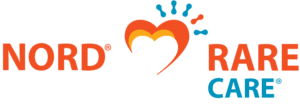Última actualización:
November 24, 2015
Años publicados: 1986, 1987, 1990, 1992, 1993, 1999, 2007, 2009, 2015
NORD gratefully acknowledges Joshua Banago, NORD Editorial Intern from the University of Notre Dame, and Ayman W El-Hattab, MD, FAAP, FACMG, Division of Clinical Genetics and Metabolic Disorders, Pediatric Department, Tawam Hospital, Al-Ain, United Arab Emirates, for assistance in the preparation of this report.
Summary
Systemic primary carnitine deficiency (CDSP) is a rare metabolic disorder in which the body cannot properly process fats into energy. Carnitine functions to carry fatty acids obtained through diet to the energy centers in muscle cells (mitochondria). A deficiency of carnitine results in accumulation of fats in the liver, muscle, and heart. Symptoms of CDSP in infants can include poor feeding, tiredness, irritability and low blood sugar (hypoglycemia) but CDSP can also present later in childhood with heart and muscle abnormalities. Some people with CDSP are diagnosed as adults and have mild or no symptoms. CDSP is caused by mutations in the SLC22A5 gene and inherited as an autosomal recessive genetic condition.
Introduction
CDSP is treatable by the daily use of L-carnitine supplements. Without early detection and treatment, an affected child may experience low blood sugar (hypoglycdemia), seizures, heart muscle weakness (cardiomyopathy) that can be life-threatening. Newborn screening is available for CDSP.
CDSP can present in three ways. Infants with the infantile metabolic (hepatic) type present in the first two years of life with episodes of irritability, tiredness and abnormal enlargement of the liver (hepatomegaly). Laboratory results show hypoglycemia with little to no ketones in urine (hypoketotic hypoglycemia), high levels of ammonia in the blood hyperammonemia), and elevated liver transaminases. Some children with the infantile presentation may also have symptoms of muscle disease.
Children with the childhood myopathic (cardiac) type usually present between ages two to four with heart disease (cardiomyopathy), low muscle tone (hypotonia), skeletal muscle weakness, and elevated serum creatine kinase.
The adulthood presentation of CDSP is much rarer and the most common symptom is fatigability.
CDSP is caused by mutations in the CLC22A5 gene, resulting in absent or dysfunctional OCTN2 protein. Normally, this protein functions to reabsorb carnitine in kidneys and transport carnitine inside cells. If the protein is absent or abnormal, there is a shortage of carnitine in cells. Carnitine functions to carry fatty acids obtained through diet to the energy centers in muscle cells (mitochondria). A deficiency of carnitine results in an inability to utilize fat leading to hypoglycemia and the accumulation of fats in the liver, muscle, and heart.
CDSP is inherited as an autosomal recessive genetic trait. Recessive genetic disorders occur when an individual inherits two copies of an abnormal gene for the same trait, one from each parent. If an individual inherits one normal gene and one gene for the disease, the person will be a carrier for the disease but will not show symptoms. The risk for two carrier parents to both pass the altered gene and have an affected child is 25% with each pregnancy. The risk to have a child who is a carrier like the parents is 50% with each pregnancy. The chance for a child to receive normal genes from both parents is 25%. The risk is the same for males and females.
All individuals carry 4-5 abnormal genes. Parents who are close relatives (consanguineous) have a higher chance than unrelated parents to both carry the same abnormal gene, which increases the risk to have children with a recessive genetic disorder.
CDSP is a rare disorder that affects males and females in equal numbers. Based on newborn screening and reports in medical literature, the prevalence in the US is estimated to be 1:50,000.
Plasma carnitine levels are extremely reduced in CDSP. The diagnosis can be confirmed with molecular genetic testing to identify mutations in the SLC22A5 gene. Newborn screening is available to detect low carnitine levels in infants with CDSP.
The main treatment for CDSP is L-carnitine supplementation, which is very effective if started before organ damage occurs. Hypoglycemic episodes associated with carnitine deficiency are treated with intravenous dextrose infusion or proper feeding and diet. Maintaining normal carnitine levels through supplementation and preventing hypoglycemia through frequent feeding and diet can prevent the metabolic, hepatic, cardiac, and muscular complications of CDSP.
Cardiomyopathy, if present, should be managed and treated by a cardiologist.
Information on current clinical trials is posted on the Internet at www.clinicaltrials.gov. All studies receiving U.S. Government funding, and some supported by private industry, are posted on this government web site.
For information about clinical trials being conducted at the NIH Clinical Center in Bethesda, MD, contact the NIH Patient Recruitment Office:
Tollfree: (800) 411-1222
TTY: (866) 411-1010
Email: [email protected]
For information about clinical trials sponsored by private sources, contact:
For more information about clinical trials conducted in Europe, contact: https://www.clinicaltrialsregister.eu/
INTERNET
El-Hattab AW. Systemic Primary Carnitine Deficiency. 2012 Mar 15 [Updated 2014 Jun 26]. In: Pagon RA, Adam MP, Ardinger HH, et al., editors. GeneReviews [Internet]. Seattle (WA): University of Washington, Seattle; 1993-2015. Available from: https://www.ncbi.nlm.nih.gov/books/NBK84551/ Accessed November 4, 2015.
National Library of Medicine. Genetics Home Reference. Primary Carnitine Deficiency. Reviewed September 2014. Available at: https://ghr.nlm.nih.gov/condition/primary-carnitine-deficiency Accessed November 4, 2015.
Online Mendelian Inheritance in Man (OMIM). Victor A. McKusick, Editor; Johns Hopkins University, Last Edit Date 07/07/2014, Entry Number 212140. Available at https://omim.org/entry/212140 Accessed November 4, 2015.

NORD y la Fundación MedicAlert se han asociado en un nuevo programa para brindar protección a pacientes con enfermedades raras en situaciones de emergencia.
Aprende más https://rarediseases.org/patient-assistance-programs/medicalert-assistance-program/Asegurarse de que los pacientes y los cuidadores estén equipados con las herramientas que necesitan para vivir su mejor vida mientras manejan su condición rara es una parte vital de la misión de NORD.
Aprende más https://rarediseases.org/patient-assistance-programs/rare-disease-educational-support/Este programa de asistencia, primero en su tipo, está diseñado para los cuidadores de un niño o adulto diagnosticado con un trastorno raro.
Aprende más https://rarediseases.org/patient-assistance-programs/caregiver-respite/